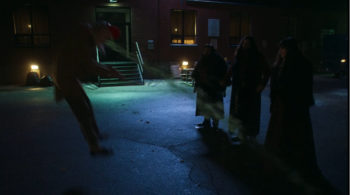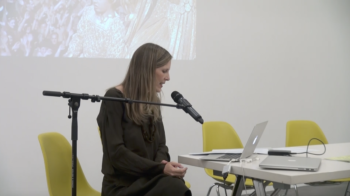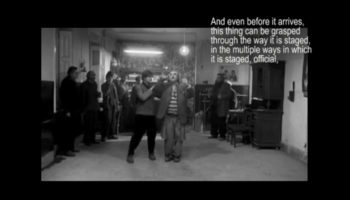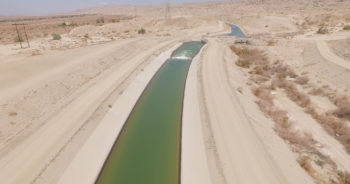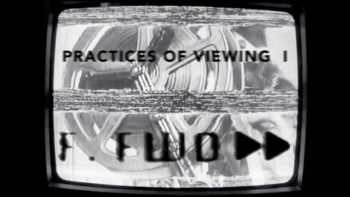What We Do With The Boundaries
Text: Kiran Kuzhippallil
Feb 24th 2021
The TV series What We Do In The Shadows, offers an interesting counterpoint to the concepts presented by Julia Kristeva through the use of incongruity theory of humor. The series addresses the instinctive border that is drawn through abjection and illustrates how through the clever use of genre conventions, abject images can become sterilized and even comedic. This serves to show that even the instinctual human distinction between the self and the other is malleable through art.
Read more
La Commune (Paris, 1871). A lecture by Fabienne Liptay
Text: Fabienne Liptay
May 9th 2020
In his book “Peuples exposés, peuples figurants” (2012), Georges Didi-Huberman asks the question of how to make of the image a „common place“. In regard to cinema, this entails overruling the „commonplace of images of the people“ that is usually occupied by the extras as backdrop of the hero’s story and replacing it by a […]
Read more
“The Scattered Community of the Eclipsed”. Paradigms of Belonging in the Wake of the 2020 Pandemic
Text: the Community of unfaithful echoes
Jun 14th 2020
To face. To question one’s own presence towards what is present. Not giving up the potentiality for suspension that the event offers, but rather inhabit it fully. To form a community of the event, the scattered community of the eclipsed. The Film “The darkness of the eclipse” is a first fragment of a series presented by the Community of unfaithful echoes.
Read more
To Watch the War. An Interview mit Olexii Kuchanskyi and Oleksiy Radynski.
Text: Sandra Biberstein
Oct 24th 2022
For the proof of war crimes and the medial mediation of the events, but also for finding a language of violence, destruction, solidarity, compassion and resistance, the documentation of the events is essential. But what does it mean to document war? And what is the role of the arts, especially film? Film programmer Olexii Kuchanskyi and filmmaker Oleksiy Radynski have organized an exhibition named “To Watch the War,” which shows 18 films at the Coalmine – Raum für Fotografie. In conversation with Sandra Biberstein they talked about the developments in experimental film and video work since the invasion that began 2014 in an attempt to suppress the popular Maidan uprising in Ukraine.
Read more
Fährten des Anthropozäns lesen
Text: Julius Schmidt
Sep 22nd 2022
Durch die Industriestadt, in der ich lebe, stromernd stolpere ich über einen Algenbrunnen in der Ecke eines besetzten Hauses; minutenlange Aufnahmen von Monokulturen an den Kurzfilmtagen; und eine Person, die in den oxyd Kunsträumen auf die globale Lage mit einer Kakerlaken-Werdung antwortet. Hat das alles etwas mit jenem Konzept zu tun, das zurzeit in der Natur- und Kulturwissenschaft debattiert wird, dem «Anthropozän»?
Read more
«Ein Film ist wie ein Prisma, in dem sich die Zeit bricht.» – Ein Gespräch mit Johannes Binotto
Text: Sandra Biberstein
Feb 24th 2022
Der Kultur- und Medienwissenschaftler Johannes Binotto setzt sich in seinem aktuellen Forschungsprojekt «Video Essay. Futures of Audiovisual Research and Teaching» mit den Praktiken des Sehens auseinander. Der Videoessay dient ihm dabei nicht nur als Untersuchungsgegenstand, sondern auch als wissenschaftliches Werkzeug, das neues Wissen generiert. Sandra Biberstein hat mit ihm nicht nur über das Format Videoessay, sondern auch über die Möglichkeiten eines «oppisitionellen Blicks» auf Filme und über Programmkinos als Resonanzkörper gesprochen.
Read more
